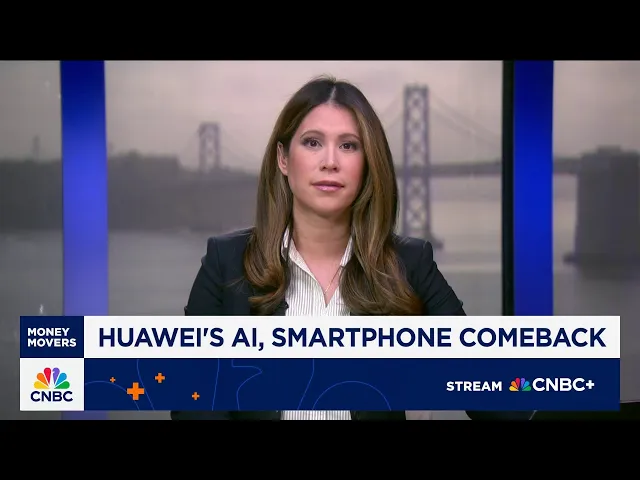Hauwei AI chip report sends Nvidia shares sliding

Nvidia shares slide: is Huawei catching up?
The tech world is buzzing as Nvidia shares took a hit following reports that Huawei is developing competing AI chips. This development has intensified the ongoing debate in Silicon Valley about how the United States should approach the technological arms race with China, particularly in the critical field of artificial intelligence where American companies have long dominated.
Key Points:
- Nvidia stock dropped on news that Huawei is testing a newer, more powerful AI chip, challenging America's perceived lead in this crucial technology
- Silicon Valley is divided on China strategy: venture capitalists like Bill Gurley and Brad Gerstner argue "containment is a distraction" while others close to the administration dismiss Huawei's progress
- Despite years of U.S. restrictions, Huawei has made a remarkable comeback, rebuilding its smartphone business, becoming China's second-largest cloud provider, and designing its own processors
Competing Strategies in a Zero-Sum Game
What's most striking about this situation is how it exposes fundamentally different views of technological competition. On one side, venture capitalists and certain tech leaders view containment as ultimately self-defeating—arguing that companies focusing too much on blocking competitors rather than innovating will fall behind. The "stay in your lane" mentality versus actively monitoring competitors represents two distinct strategic approaches.
This debate reflects a broader question facing American tech policy: is technological leadership a zero-sum game where one nation's gain is another's loss, or is it better approached as an ecosystem where competition drives innovation for all? The answer has enormous implications. If containment fails, and companies like Huawei succeed despite restrictions, we may be witnessing a permanent shift in the global technology landscape.
The Phoenix Rises: Lessons from Huawei's Resilience
Huawei's trajectory offers a compelling case study in technological resilience. After facing crippling U.S. bans on both telecommunications equipment and Android licenses in 2019, many predicted the company's decline. Yet, as Huawei founder Ren Zhengfei prophetically stated, "What doesn't kill you makes you stronger." The "phoenix rising from the fire" metaphor he used has proven remarkably accurate.
Today, Huawei has not only rebuilt its
Recent Videos
How To Earn MONEY With Images (No Bullsh*t)
Smart earnings from your image collection In today's digital economy, passive income streams have become increasingly accessible to creators with various skill sets. A recent YouTube video cuts through the hype to explore legitimate ways photographers, designers, and even casual smartphone users can monetize their image collections. The strategies outlined don't rely on unrealistic promises or complicated schemes—instead, they focus on established marketplaces with proven revenue potential for image creators. Key Points Stock photography platforms like Shutterstock, Adobe Stock, and Getty Images remain viable income sources when you understand their specific requirements and optimize your submissions accordingly. Specialized marketplaces focusing...
Oct 3, 2025New SHAPE SHIFTING AI Robot Is Freaking People Out
Liquid robots will change everything In the quiet labs of Carnegie Mellon University, scientists have created something that feels plucked from science fiction—a magnetic slime robot that can transform between liquid and solid states, slipping through tight spaces before reassembling on the other side. This technology, showcased in a recent YouTube video, represents a significant leap beyond traditional robotics into a realm where machines mimic not just animal movements, but their fundamental physical properties. While the internet might be buzzing with dystopian concerns about "shape-shifting terminators," the reality offers far more promising applications that could revolutionize medicine, rescue operations, and...
Oct 3, 2025How To Do Homeless AI Tiktok Trend (Tiktok Homeless AI Tutorial)
AI homeless trend raises ethical concerns In an era where social media trends evolve faster than we can comprehend them, TikTok's "homeless AI" trend has sparked both creative engagement and serious ethical questions. The trend, which involves using AI to transform ordinary photos into images depicting homelessness, has rapidly gained traction across the platform, with creators eagerly jumping on board to showcase their digital transformations. While the technical process is relatively straightforward, the implications of digitally "becoming homeless" for entertainment deserve careful consideration. The video tutorial provides a step-by-step guide on creating these AI-generated images, explaining how users can transform...
